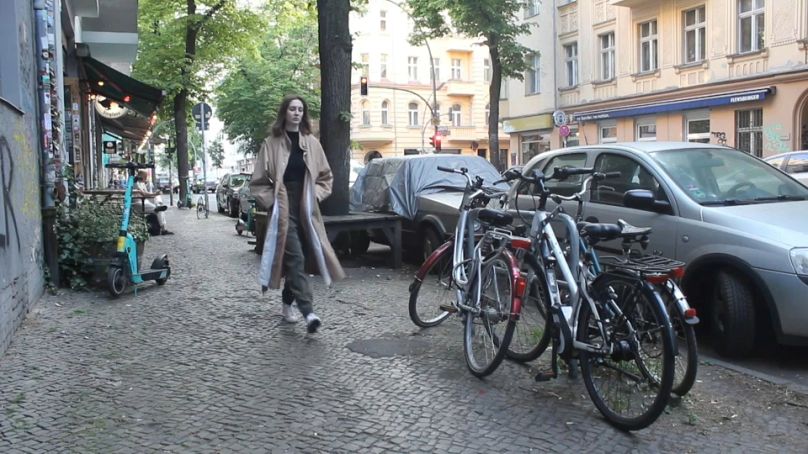With an 80 per cent increase in asylum applications this year, Berlin and other German cities are setting up container homes amid a backdrop of far-right protests.
Eleonora fled to Berlin from Ukraine in March last year. Since then, she has lived in five places, one of which had no heating in winter.
She has been unable to find permanent housing in Berlin, like many refugees stuck in the city’s housing crisis.
“For me, it’s very hard to say that I’m homeless but then I realised that in Berlin there are a lot of homeless people just like me," she told Euronews.
"People with jobs, with opportunities, but that just can’t find a home.”
The lack of accommodation has forced Berlin to turn an old airport into a centre with hundreds of container homes for refugees.
Local governments say more financial support is needed - especially considering inflation and the rising amount of asylum seekers.
In Germany, there was a 78 per cent increase in asylum applications in the first four months of this year compared to the same period last year.
The national government promised an extra one billion euros earlier this month, but some politicians say that’s not enough.
In Brandenburg, next to Berlin, there are plans to build three-thousand container homes this year.
State Parliament Member Petra Budke said these homes were not a long-term solution and that building permits needed to be simplified.
“We have to really build a lot more apartments in the future, and we have to start now," Budke, a member of the Greens in Brandenburg’s coalition government, said.
"The bureaucratic procedure takes a very, very long time, and that could be shortened. That would really help a lot” she added.
But it's not just a lack of supplies and resources that has been challenging. There have also been protests across Germany over plans for more accommodation.
Demonstrations have been organised by far-right politicians who are against seeing more refugees arrive in their cities.
Eleonora has to leave her current apartment this week. She will have to stay with friends for a while and doesn’t know what she will do afterwards.
She is even considering going back to Ukraine.
“I don’t want to simply survive and be searching for a flat every time or be hungry," she said.
"I just want to live my life fully. I prefer to live a short but happier life.”
The national government will be holding another meeting with local governments on dealing with asylum seekers in November.












